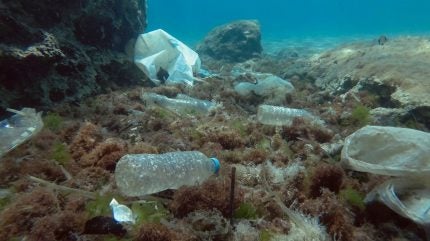
The UN has estimated that more than 400 million tonnes of plastic are produced annually, with less than 10% being recycled.
Southeast Asia, once heavily impacted by plastic pollution, is now reportedly at the forefront of combating this crisis.

Discover B2B Marketing That Performs
Combine business intelligence and editorial excellence to reach engaged professionals across 36 leading media platforms.
The region has seen the adoption of the Bangkok Declaration on Combating Marine Debris in 2019, the Association of Southeast Asian Nations (ASEAN) Regional Action Plan in 2021, and the ASEAN Blue Economy Framework at the 43rd ASEAN Summit in September 2023.
These initiatives underscore the importance of cross-border cooperation in addressing plastic pollution.
The World Economic Forum’s Global Plastic Action Partnership (GPAP) supports countries with multi-stakeholder approaches to tackle plastic pollution. Indonesia was the first to join GPAP, which launched the National Plastic Action Partnership (NPAP) in 2019.
Currently, six Southeast Asian countries, including Cambodia, Laos, Indonesia, the Philippines, Vietnam, and Bangladesh, are participating in GPAPs and NPAPs.

US Tariffs are shifting - will you react or anticipate?
Don’t let policy changes catch you off guard. Stay proactive with real-time data and expert analysis.
By GlobalDataThe NPAPs in these countries focus on local ownership, evidence-based action, and inclusive approaches, driving coordination across various sectors.
The NPAPs have been successful in spotlighting and scaling local innovations. In the Philippines, the Flexible Plastic Recycling Working Group is co-designing circular solutions while Cambodia’s River Ocean Cleanup initiative combines cleanup activities with waste data analytics.
Vietnam’s VietCycle project empowers waste workers with training and recognition.
The year is seen as pivotal for global plastic action, with the expected conclusion of the Global Plastics Treaty negotiations.
ASEAN countries are encouraged to create collaborative links between various initiatives, including the Southeast Asia Regional Program on Combating Marine Plastics, ASEAN Regional Working Groups, NPAPs, and partners such as the GPAP and the Global Green Growth Institute (GGGI).
The GGGI, an intergovernmental organisation based in South Korea with a membership of 50 states, includes multiple ASEAN nations. GGGI’s report underscores the need for targeted international support for developing economies to implement the Global Plastics Treaty effectively.
GGGI director general Sang-Hyup Kim said: “By aligning the [Global Economic] Forum’s global networks with GGGI’s project development experience, we aim to develop concrete initiatives on climate action, energy transition, biodiversity conservation, and resilient global supply chains that can attract investment and create measurable benefits for communities and the environment.”
South Korea has also made significant strides in waste management, aiming to halve plastic waste by 2030 and increase recycling rates to 70%.
The country’s waste management system, which includes a separate disposal system for recyclable waste, volume-based waste fees, and restrictions on single-use plastics, has driven behavioural change for decades.





